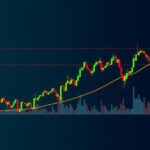Elon Musk Warns of Financial Emergency as U.S. Economy Faces $35.7 Trillion Debt Crisis
Billionaire Elon Musk has declared a “financial emergency” in the U.S. over its $35.7 trillion debt level and escalating interest payments, leading to a surge in Bitcoin and gold prices. He noted that interest payments consume 23% of federal tax revenue and exceed the Department of Defense budget. Financial analyst Paul Tudor Jones warns of inflation as he endorses Bitcoin and gold as safe investments, attributing significant debt to pandemic fiscal measures. Tesla’s Bitcoin holdings have also come under scrutiny amidst these developments.
Elon Musk, the prominent billionaire and CEO of Tesla, has voiced grave concerns regarding the financial stability of the United States, declaring it to be on the verge of a “financial emergency.” This proclamation comes in light of the excessive U.S. national debt, which has surged to an alarming $35.7 trillion, coupled with the rising interest payments which amount to approximately $1 trillion annually. During a recent campaign rally for Donald Trump, Musk emphasized that these interest payments now consume 23% of all federal tax revenue, surpassing the annual budget allocated to the Department of Defense, which also stands at roughly $1 trillion. This precarious situation is leading many investors to flee towards safe-haven assets such as Bitcoin and gold, as evidenced by Bitcoin’s price surge this year, nearing its previous all-time high of $70,000. Tesla currently holds approximately 10,000 Bitcoin, valued at nearly $800 million, raising speculation regarding the company’s potential liquidation of these assets following a recent transfer of Bitcoin to new wallets. The rapid increase in U.S. national debt, primarily attributed to stimulus measures during the COVID-19 pandemic, has raised inflationary pressures, compelling the Federal Reserve to implement aggressive interest rate hikes. Additionally, financial analyst Paul Tudor Jones has expressed profound concern regarding inflationary trends, stating, “all roads lead to inflation,” and has publicly endorsed both gold and Bitcoin as effective hedges against anticipated economic challenges. He criticized both potential Trump’s deficit increase of $500 billion and the $600 billion spike proposed under Vice President Kamala Harris’ plan, labeling them as unrealistic ambitions. Tudor Jones, one of the earliest Wall Street proponents of Bitcoin, posits that the cryptocurrency represents the “fastest horse to beat inflation.”
The U.S. economy is experiencing significant strain due to unprecedented levels of national debt, which is projected to reach $36 trillion by the end of 2024. Much of this debt accumulation has occurred as a result of expansive government spending in response to the COVID-19 pandemic, which has incited fears of inflation. Musk’s assertion of a financial emergency highlights the unsustainable nature of the current fiscal trajectory. With rising interest rates, traditional safe-haven investments like gold have surged in price, while cryptocurrencies, notably Bitcoin, have also gained traction as investors seek viable hedge strategies against economic instability. This backdrop has prompted investor sentiment to pivot vigorously towards these assets amidst warnings from various economic authorities regarding fiscal irresponsibility and inflationary pressures.
In conclusion, Elon Musk has brought attention to what he perceives as a critical financial emergency for the United States, driven by an overwhelming national debt and spiraling interest payments. His commentary comes alongside a notable surge in Bitcoin prices, reflecting a broader trend among investors seeking refuge in reliable assets like cryptocurrencies and gold. The financial landscape appears increasingly precarious, with industry leaders like Paul Tudor Jones advocating for Bitcoin and gold amidst concerns of inflationary outcomes arising from current economic policies. As the situation develops, the movements within the cryptocurrency market may continue to mirror these financial stresses.
Original Source: www.forbes.com








Post Comment